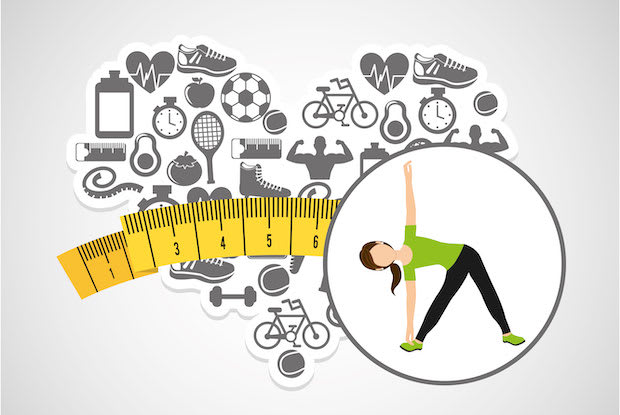Liraglutide for Weight Loss: Does It Really Work? Mechanism of Action
Liraglutide for Weight Loss: Does It Really Work? Mechanism of Action
Table of Contents
I. How Liraglutide Affects Weight Loss
II. Realistic Results and What to Expect
III. Liraglutide Side Effects and Safety Tips
IV. Who Should and Shouldn’t Use Liraglutide
V. Begin Your Health Quest with ScriptsMD
Liraglutide has become a standard option for people exploring medical support for weight loss. Created to manage type 2 diabetes, it was later approved for weight management because of the added benefit of reducing appetite and supporting gradual weight loss.
If you’re wondering whether liraglutide is effective, you’re not alone. This article explains how the medication works, what types of results are realistic, and why supervision from a healthcare provider is crucial. Whether you’re new to weight loss medications or weighing your options, you’ll find answers to help guide your next step.
Quick Takeaways
- Liraglutide helps manage appetite and blood sugar
- Many users lose between 5% and 10% of their body weight
- The drug works best with lifestyle changes
- Results vary by health history and how closely it’s followed
- Side effects can occur, especially at the beginning
- Medical guidance is essential for safe use
How Liraglutide Affects Weight Loss
What the Medication Does in the Body
Liraglutide works by copying a hormone that affects appetite and digestion. It helps slow down how fast food leaves your stomach. This can make you feel full sooner and reduce how much you eat during meals. As a result, it may help you take in fewer calories without feeling deprived.
The drug was first used to treat type 2 diabetes. Doctors later saw that many patients also lost weight while taking it. In clinical trials, people who followed a complete treatment plan with liraglutide often lost more weight than those who didn’t use the medication. 1
Why It Works for Some People
Losing weight with liraglutide typically occurs over time. The changes are usually steady rather than fast. Most people notice the best results when they follow the plan daily and stay committed to their routine.
- Staying active can help boost results
- Eating on a regular schedule supports progress
- Building small habits keeps the momentum going
Everyone responds to the medication differently. Some people see changes quickly, while others need more time. What matters most is staying focused and being patient with the process. With support and consistency, gradual success is possible.

The Role of Medical Supervision
Liraglutide should always be used under the supervision of a healthcare professional. A provider will help you start with the correct dose and make sure it increases safely over time. They’ll also monitor how your body reacts and check for any early side effects.
This kind of support helps reduce risk and improves your chances of success. Taking it without guidance can lead to problems that are hard to manage on your own. It’s essential to communicate openly with your healthcare provider and follow the plan they recommend. That way, your treatment stays both safe and effective.
Realistic Results and What to Expect
Average Weight Loss Based on Studies
Studies have shown that liraglutide can lead to a weight loss of 5% to 10% over several months. This might not seem like a lot, but even small changes can improve your health. People who used the drug along with lifestyle changes often saw better outcomes. 1
Results vary depending on age, physical activity, and the duration of medication use. Some people lose weight faster at the beginning. Others notice slower progress. What matters most is sticking to the plan and checking in with your provider along the way.
Signs the Medication Is Working
Not all signs of progress are seen in weight alone. Many people begin to feel full faster during meals and notice fewer cravings throughout the day. These changes help reduce calorie intake without making you feel like you're missing out on anything. Some also report better sleep and improved energy levels after starting treatment.
Tracking progress can help keep you motivated. Some users keep a simple journal to note changes in hunger, mood, and sleep. These small wins can be just as meaningful as weight loss. Staying consistent is key, even if the scale doesn’t move right away.
These early shifts are reminders that the medication is working. Keeping track of how you feel can help you stay focused and keep going when progress feels slow.

Liraglutide Side Effects and Safety Tips
What to Watch For
Liraglutide, like any prescription medication, may cause side effects. Many people feel mild nausea or stomach issues when they first start taking it. These effects often go away as the body adjusts to the medication. More serious reactions are rare but should not be ignored.
If you feel unwell or have concerns, please consult with your healthcare provider. They may suggest a slower dose increase or other steps to help. Never stop treatment without medical advice.
- Nausea and stomach upset
- Bloating or indigestion
- Mood changes or gallbladder discomfort
Knowing what to expect from side effects helps you manage your treatment more effectively. Next, let’s explore how to take liraglutide safely to support your long-term goals.
How to Use It Safely
You will begin treatment with a small dose and gradually increase it, following your healthcare provider’s instructions. This gradual approach helps reduce side effects and allows your body to become accustomed to the medication. Liraglutide is administered once daily using a small injection placed in the stomach, upper arm, or thigh.
Try to take your dose at the same time every day. This helps build a routine and lowers the risk of missing a dose. If you do forget, contact your provider before restarting. Keep your liraglutide pen in the proper storage conditions, and never use someone else’s medication or share your own.
Who Should and Shouldn’t Use Liraglutide
Who It May Help
Liraglutide may be a good option for adults who struggle with weight and have not seen lasting success with diet or exercise.
- It is often used when BMI is 30 or higher
- It may also be used at a BMI of 27 or above, with added health risks
- Common conditions include high blood pressure and prediabetes
- It supports people who face intense cravings or emotional eating
- It can help those who need medical support to stick with new routines
The medication can help people who feel stuck in old habits. It may reduce hunger and help you feel full sooner. This support gives some users a fresh start and a way to rebuild their approach to eating and daily health.
Who Should Be Cautious
Liraglutide is not the right choice for everyone. People who have had certain cancers, thyroid problems, or pancreatitis may be advised to avoid this treatment. Women who are pregnant or trying to become pregnant should not use liraglutide due to possible risks to the baby.
Before starting, your provider will need to understand your full medical background. Be open about any medications you take and past health issues. This helps create a plan that is safe and tailored to your needs. A strong starting point leads to better results and lowers the risk of side effects.
Begin Your Health Quest with ScriptsMD
Liraglutide can be a powerful tool in the fight against obesity—but it’s not a magic fix. It works best when paired with a structured approach, realistic expectations, and regular medical guidance. Many people who use it see steady improvements in both weight and overall health. Still, the medication is just one part of a broader plan. Lasting change depends on consistency, support, and habits that persist long after the injections have stopped. If you’re considering liraglutide, knowing how it works and what to expect can help you make the best choice for your goals.
For more support navigating your insurance benefits for weight loss treatments, contact ScriptsMD today.
References
- Xavier Pi-Sunyer, Arne Astrup, Ken Fujioka, et al. A Randomized, Controlled Trial of 3.0 mg of Liraglutide in Weight Management
